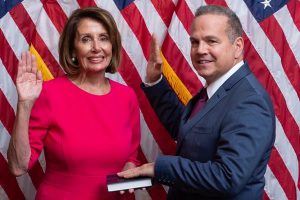
In order to make the federal funding process more responsive to the needs of the American people, the U.S. House Appropriations Committee will accept requests this year from Members of Congress for Community Project Funding to support specific, worthwhile projects in the districts they represent. Applications from local and state governments, as well as 501(c)(3) non-profit organizations, will be submitted from individual Congressional offices to the Appropriations Committee to be considered for FY2022.
U.S. Congressman David N. Cicilline (RI-01), who has fought for the Community Project Funding initiative in recent years as a way to ensure more federal funding is invested in Rhode Island, announced today that his office is in the process of collecting applications from eligible entities to submit to the Appropriations Committee.
State and local governments, as well as 501(c)(3) non-profit organizations, can visit https://cicilline.house.gov/CommunityFunding and submit information regarding their request for Community Project Funding by 6pm on April 16, 2021.
Applicants will need to include:
- Name of the recipient
- Address of the recipient
- Amount of the request
- An explanation of the request, including its purpose, and why it is an appropriate use of government funds
- Evidence of community support (i.e., letters of support from elected officials, published reports on the need for funding, projects listed on State intended-use plans, community development plans, or resolutions passed by city councils or boards)
- For non-profits, evidence that the organizations work is primarily focused on Rhode Island’s First District
Members of Congress will be allowed to submit 10 requests from their districts to the House Appropriations Committee. Only projects with demonstrated community support will be considered. Funding is for Fiscal Year 2022 only. Eligible recipients are limited to state and local governments, and non-profit organizations as defined under Section 501(c)(3) of the Internal Revenue Code of 1986.
Federal programs may require a state or local match for projects. The match cannot be waived.







Comments